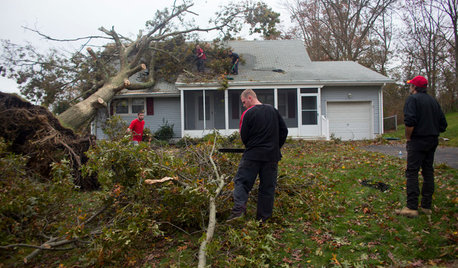attempted to perform a charitable educational act
paul_
10 years ago
Related Stories

DECORATING GUIDESCalifornia Law: License to Practice Interior Design?
A proposed bill that would require a license to practice interior design in California has Houzzers talking. Where do you stand?
Full Story
KITCHEN DESIGN8 Kitchen Sink Materials to Consider
Learn the pros and cons of these common choices for kitchen sinks
Full Story
MOST POPULARWhat Is a Living Building?
Part philosophy, part advocacy, the Living Building Challenge is pushing designers and homeowners to rethink how we live
Full Story
GREEN BUILDINGWhat's LEED All About, Anyway?
If you're looking for a sustainable, energy-efficient home, look into LEED certification. Learn about the program and its rating system here
Full Story
BUDGETING YOUR PROJECTConstruction Contracts: What Are General Conditions?
Here’s what you should know about these behind-the-scenes costs and why your contractor bills for them
Full Story
HOUZZ TOURSHouzz Tour: A Modern Addition Joins a Historic California Home
Two design pros give their century-old home extra breathing room while boosting its energy efficiency
Full Story
CONTRACTOR TIPS10 Things to Discuss With Your Contractor Before Work Starts
Have a meeting a week before hammers and shovels fly to make sure everyone’s on the same page
Full Story
MOST POPULARWhat to Do After a Hurricane or Flood
How you treat your home after a natural disaster can make all the difference in its future livability — and your own personal safety
Full Story
WORKING WITH PROSWhat Do Landscape Architects Do?
There are many misconceptions about what landscape architects do. Learn what they bring to a project
Full Story
ARCHITECTUREHow Thermal Mass Keeps You Warm and Cool
Passive solar design makes use of this element. Here’s how it works and how you can get it in your home
Full StoryMore Discussions









bikerdoc5968 Z6 SE MI
kaktuskris
Related Professionals
Elmhurst Landscape Contractors · Maywood Landscape Contractors · Shoreview Landscape Contractors · Siloam Springs Landscape Contractors · Whittier Landscape Contractors · Antioch Landscape Contractors · Forest Hill Landscape Contractors · Berkeley General Contractors · Dothan General Contractors · Niles General Contractors · North Miami Beach Carpenters · Snellville Carpenters · Quincy Decks, Patios & Outdoor Enclosures · Spokane Decks, Patios & Outdoor Enclosures · Tomball Decks, Patios & Outdoor Enclosuresbikerdoc5968 Z6 SE MI
asleep_in_the_garden
kaktuskris
bikerdoc5968 Z6 SE MI
paul_Original Author
kaktuskris
Tiffany, purpleinopp Z8b Opp, AL
wantonamara Z8 CenTex
paul_Original Author
wantonamara Z8 CenTex
asleep_in_the_garden
kaktuskris